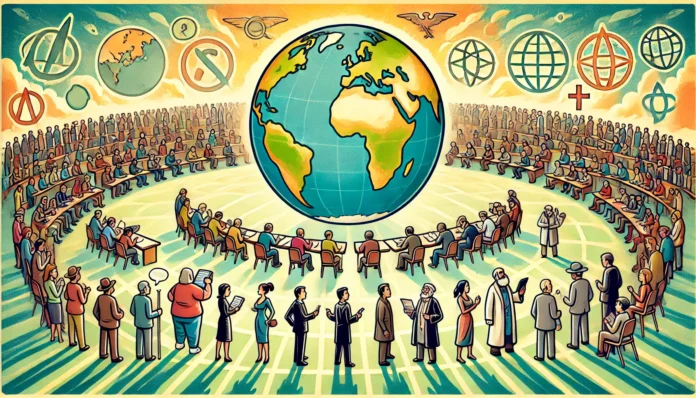The Global Rise of Atheism: Trends in Faith and Nonbelief
Across the globe, a profound transformation is underway: the steady rise of atheism and the decline of religious affiliation. This shift, once considered a phenomenon limited to Western Europe, is now evident in diverse societies, reshaping cultural, social, and political landscapes. Drawing on the latest global surveys and research, this article explores where nonbelief is growing fastest, the factors fueling this secular surge, and the implications for the future of faith and society.
Global Data: The Decline of Religion and the Growth of Nonbelief
Recent data from the Pew Research Center reveals that about three in ten U.S. adults now identify as religiously unaffiliated—a dramatic increase from previous decades. This trend is not unique to the United States. The World Values Survey and other international studies show similar patterns in Europe, East Asia, and parts of Latin America. In countries like the Czech Republic, Sweden, and Japan, the majority of young adults now describe themselves as nonreligious or atheist.
According to the Encyclopaedia Britannica, the global population of atheists and agnostics has grown steadily, with estimates suggesting that over 1.2 billion people worldwide now identify as nonbelievers. This figure is expected to rise as younger generations, who are less likely to affiliate with organized religion, come of age.
Where Is Nonbelief Growing Fastest?
Secularization is advancing most rapidly in developed nations, but significant growth is also occurring in unexpected regions. For example, Western Europe has seen a marked decline in church attendance and religious belief, with countries like the Netherlands and the United Kingdom reporting record-high levels of nonreligious identification. In East Asia, particularly in China, South Korea, and Japan, nonbelief is becoming increasingly common, driven by modernization and changing social norms.
Latin America, traditionally a stronghold of Catholicism, is also experiencing a secular shift. According to Pew Research, the number of people identifying as religiously unaffiliated has doubled in some countries over the past decade. Even in regions where religious affiliation remains high, such as sub-Saharan Africa and the Middle East, younger generations are expressing more skepticism and openness to secular ideas.
Drivers of the Secular Surge: Education, Urbanization, and the Internet
Several key factors are fueling the global rise of atheism:
- Education: Higher levels of education are strongly correlated with nonbelief. Studies from the World Values Survey show that individuals with university degrees are significantly more likely to identify as atheist or agnostic. Critical thinking skills, exposure to scientific knowledge, and diverse worldviews contribute to questioning traditional religious narratives.
- Urbanization: As more people move to cities, they encounter greater diversity and are less bound by traditional community structures. Urban environments foster individualism and provide access to secular social networks, making it easier for people to express nonreligious identities.
- Internet Access: The digital revolution has democratized information and connected like-minded individuals across borders. Online communities, forums, and social media platforms have empowered atheists and agnostics to share ideas, challenge dogma, and find support. Research published in American Sociological Review highlights the role of the internet in accelerating secularization, especially among youth.
Changing Attitudes: Generational Shifts and Social Acceptance
Generational change is a powerful engine of secularization. Younger people are far less likely than their elders to identify with a religion or attend religious services. According to Pew Research, Millennials and Generation Z are leading the charge toward nonbelief, with many citing science, personal autonomy, and dissatisfaction with religious institutions as reasons for their disaffiliation.
Social acceptance of atheism is also on the rise. In many countries, being openly nonreligious no longer carries the stigma it once did. Public figures, scientists, and activists are increasingly vocal about their atheism, contributing to a broader cultural shift. The normalization of secular identities is evident in media, politics, and education, where discussions about nonbelief are becoming more mainstream.
Political and Cultural Impacts of Secularization
The rise of atheism is not just a private matter—it is reshaping public life. In secular societies, policy debates on issues like reproductive rights, LGBTQ+ equality, and science education are less influenced by religious doctrine. Countries with higher rates of nonbelief tend to have more progressive laws and greater respect for individual freedoms.
At the same time, the growth of nonbelief has sparked backlash in some regions, with religious groups mobilizing to defend traditional values. In some countries, atheists still face discrimination or legal penalties. However, the overall trend is toward greater pluralism and the recognition of secular voices in public discourse.
The Future of Faith and Nonbelief
As the world becomes more interconnected and educated, the secular surge shows no signs of slowing. Projections from the Pew Research Center suggest that while religious populations will continue to grow in some regions, the share of nonbelievers will rise in others, particularly in developed countries. The future will likely be characterized by greater diversity of belief and nonbelief, with secular perspectives playing an increasingly prominent role in shaping societies.
Ultimately, the global rise of atheism reflects a broader quest for knowledge, autonomy, and human flourishing. As more people embrace secular worldviews, the conversation about meaning, morality, and community is evolving—opening new possibilities for individuals and societies alike.

